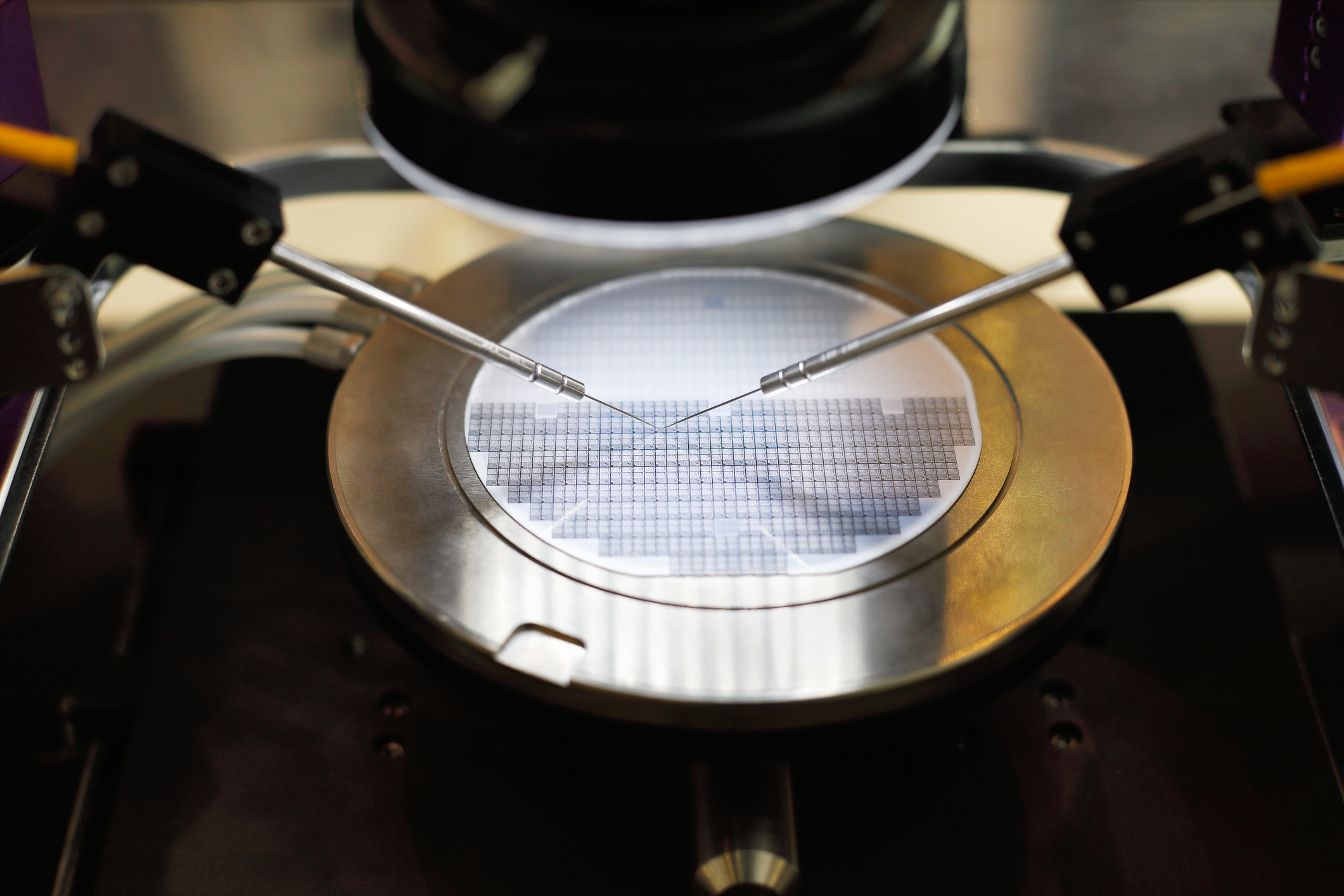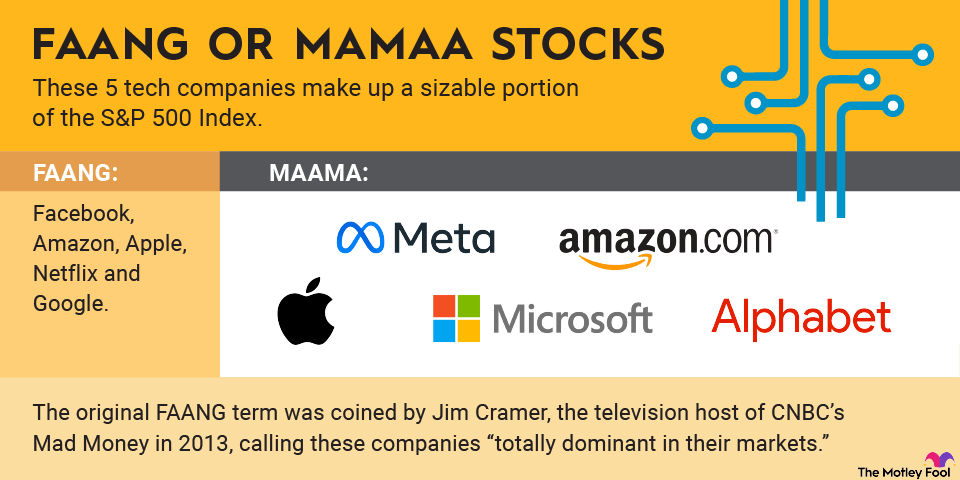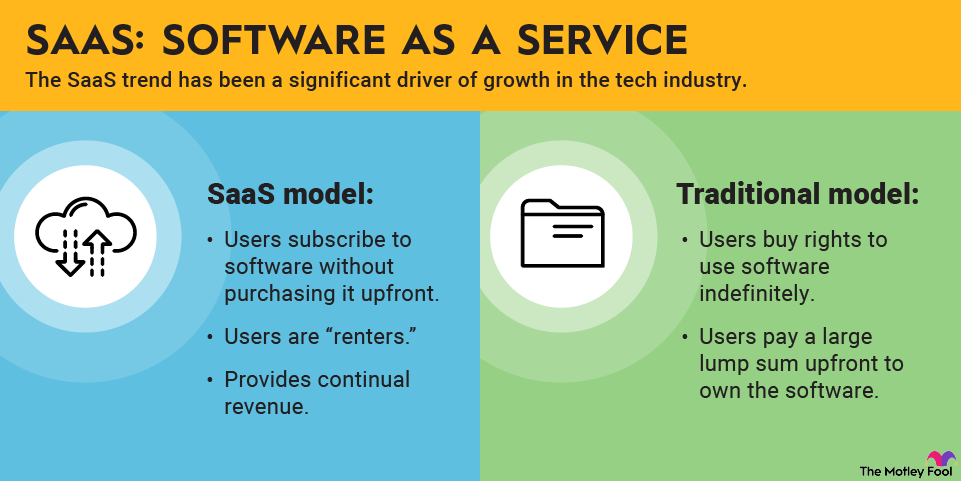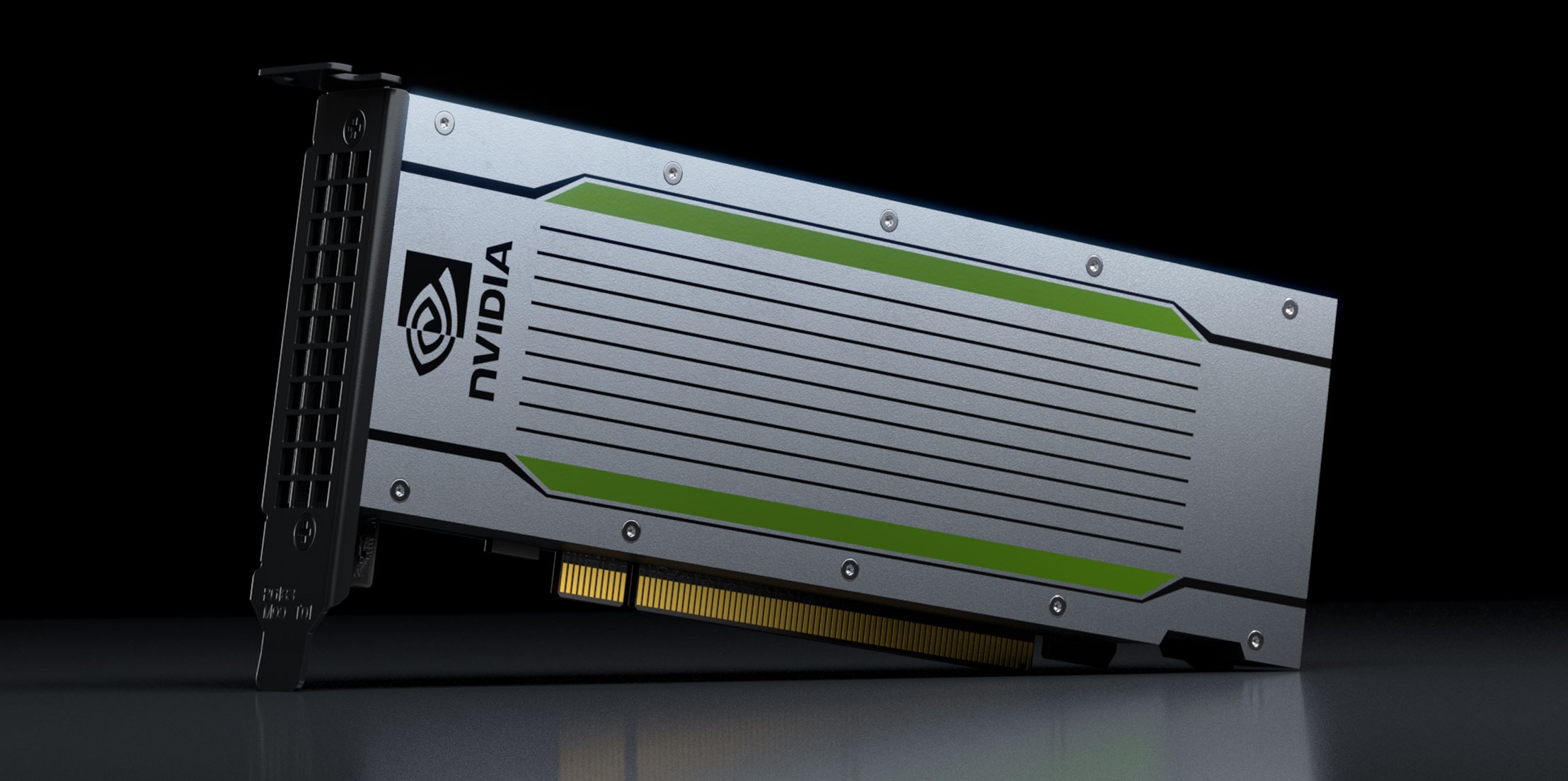Computers and smartphones aren't the only devices connecting to the internet. Everyday objects such as lights, televisions, major appliances, cars, and even doorbells are being brought online. The Internet of Things (IoT) refers to the networks of devices and objects that communicate with other devices in the same network via connections to data centers.
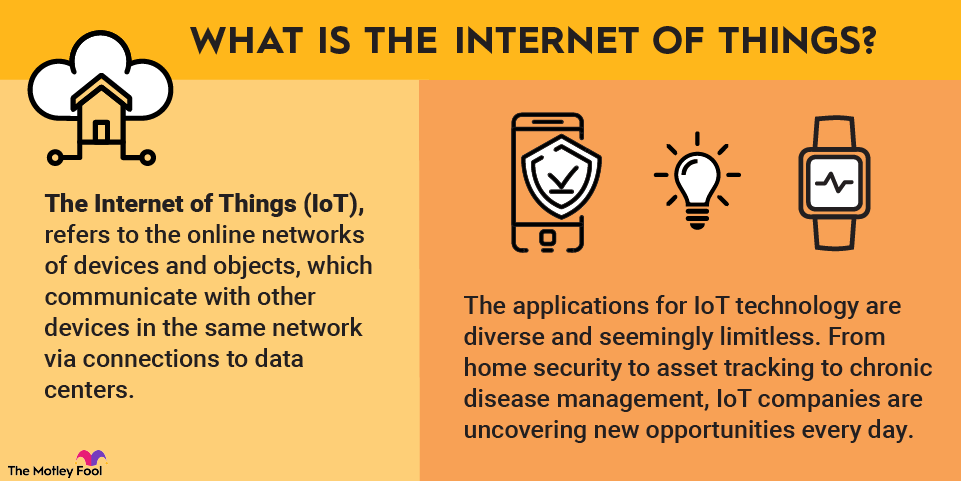
What is the Internet of Things?
Although there is plenty of overlap among general technology, cloud computing, and the IoT, pure-play IoT companies are relatively rare. Any company that makes consumer electronics devices, sensors, or chips for industrial or commercial purposes has at least some exposure to IoT technology. Software platforms that manage IoT devices and cloud computing companies are also engaged with the IoT sector.
Best IoT stocks in 2025
These six top IoT stocks range from a diversified tech giant to a pure-play IoT company:
1. Cisco Systems

NASDAQ: CSCO
Key Data Points
Cisco Systems (CSCO +0.27%) is the leading provider of enterprise networking hardware. Because its products form the backbone of the internet, the tech giant benefits from the explosion of internet-enabled devices.
Cisco sells networking hardware designed for handling large numbers of connected devices, including rugged, durable products aimed at industrial applications. On the software side, the company provides the Cisco Edge Intelligence platform and other tools for managing IoT data and devices.
Cisco is also one of the largest cybersecurity companies. The company offers hardware, software, and services aimed at securing networks against threats, including those specifically targeting IoT systems.
Cisco is a low-risk way of investing in IoT. The company is supremely profitable, having generated net income of $10.3 billion on revenue of $53.8 billion in fiscal 2025. And it's not only on the income statement that Cisco shines. In fiscal 2025, Cisco generated about $13.3 billion in free cash flow.
The company is sensitive to global economic conditions, given that its customer base includes many large companies, organizations, and governments. However, investing in the stock is a good way to gain exposure to IoT without taking big risks. Cisco remains as dominant as ever, and the company is poised to benefit from the growth of the IoT market.
2. Alarm.com
While Cisco's (ALRM +0.20%) market cap borders $274 billion, cloud software provider Alarm.com is valued at just a few billion. Its relatively small size makes it riskier than the tech giant, but the company has plenty of growth potential.
Alarm.com provides a cloud-based software platform for managing a connected home or business. Subscribers use the software to manage internet-enabled devices, including security cameras, lights, locks, thermostats, and a range of other supported products.
Alarm.com partners with service providers to sell its platform to consumers and businesses. The company currently works with about 12,000 service providers in more than 70 countries, and its products are found in about 67 million properties worldwide.
Recognizing both steady top- and bottom-line growth from 2016 through 2024, Alarm.com has increased revenue at a 17.4% compound annual growth rate (CAGR) and adjusted earnings before interest, depreciation, and amortization (EBITDA) at a 17.3% CAGR.
In addition to revenue of $990 million to $996.4 million, Alarm.com projects adjusted EBITDA of $195 million to $196.5 million for 2025. Should the company achieve the midpoints of both of these metrics, it will recognize year-over-year growth of 5.7% and 11.2%, respectively.
Revenue
Management recognizes ample growth opportunities, identifying more than 500 million serviceable properties. Since only a small fraction of homes are currently using Alarm.com’s platform, the IoT company has a long growth runway.
With the smart home trend here to stay, Alarm.com -- and its millions of subscribers -- is an early leader.
3. DexCom

NASDAQ: DXCM
Key Data Points
Total spending on consumer and industrial IoT technology is expected to pass $1 trillion in 2025.
5. Intel

NASDAQ: INTC
Key Data Points
Semiconductor
6. Samsara
Related investing topics
How to invest in IoT stocks
If you think you're ready to start investing in IoT stocks, there are a few basic steps you must take.
- Open your brokerage app: Log in to your brokerage account where you handle your investments.
- Search for the stock: Enter the ticker or company name into the search bar to bring up the stock's trading page.
- Decide how many shares to buy: Consider your investment goals and how much of your portfolio you want to allocate to this stock.
- Select order type: Choose between a market order to buy at the current price or a limit order to specify the maximum price you're willing to pay.
- Submit your order: Confirm the details and submit your buy order.
- Review your purchase: Check your portfolio to ensure your order was filled as expected and adjust your investment strategy accordingly.
Is buying IoT stocks right for you?
Sadly, there's no single answer as to whether IoT stocks are a good fit for your portfolio since investors have a wide variety of investing goals. It's important to drill down and clearly examine the potential rewards and risks.
Some of the potential advantages of investing in IoT stocks:
- IoT stocks have the potential for strong growth. The research provider Fortune Business Insights estimated the IoT global market was valued at $714.5 billion in 2024, and it estimates the market will grow to $4.1 trillion by 2032.
- Regardless of your investing goals, portfolio diversification is an essential element of any portfolio -- something that can be gained with an IoT investment.
- IoT solutions often help companies achieve better operating efficiencies and improve their profitability, making them a highly advantageous technology for many businesses to embrace.
Of course, investors must also recognize the risks related to IoT stock investments:
- If a downturn in the economy occurs, pressure on consumers and businesses may emerge, and the IoT market may not develop as rapidly as some pundits predict.
- Artificial intelligence (AI) technology is growing rapidly, and if IoT companies don't keep up, their solutions may become outdated. Consequently, they may have to invest heavily in research and development, which could reduce profits.
- Many IoT companies are reinvesting in their business instead of returning capital to shareholders with dividends, so those looking to generate passive income have limited options with IoT stocks.
If you'd rather not choose among individual stocks, you can still gain exposure to the IoT sector by investing in an IoT-focused exchange-traded fund (ETF). One such fund is the Global X Internet of Things ETF (SNSR -0.80%), which holds positions in dozens of IoT-related companies, including DexCom. Buying shares in an IoT-focused fund confers instant sector diversification.
If you are a risk-tolerant and patient investor, then investing in IoT companies may be a smart choice for you. Everyday objects are increasingly connecting to the internet, and while a "smart toaster" will always be gimmicky, IoT technology is useful for many important applications. Home security, asset tracking, and management of chronic diseases are among the many uses for IoT technology.
